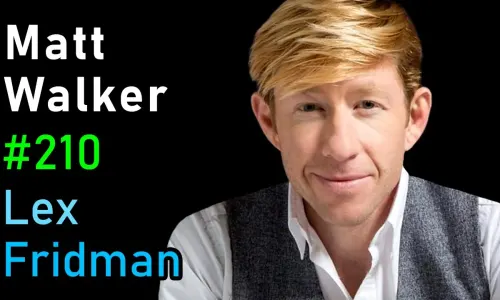See all Lex Fridman transcripts on Youtube

Matt Walker: Sleep | Lex Fridman Podcast #210
2 hours 48 minutes 17 seconds
🇬🇧 English

Omnivision Solutions Ltd
- Getting Started
- Create Transcript
- Pricing
- FAQs
- Recent Transcriptions
- Roadmap

2 hours 48 minutes 17 seconds
🇬🇧 English

Omnivision Solutions Ltd